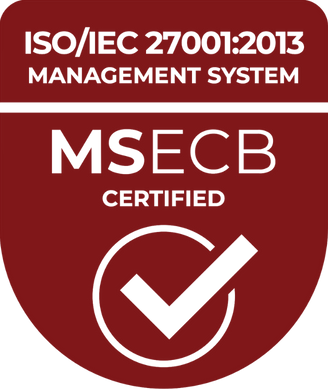Saas CEO Anders Hagberg completed Supervasan
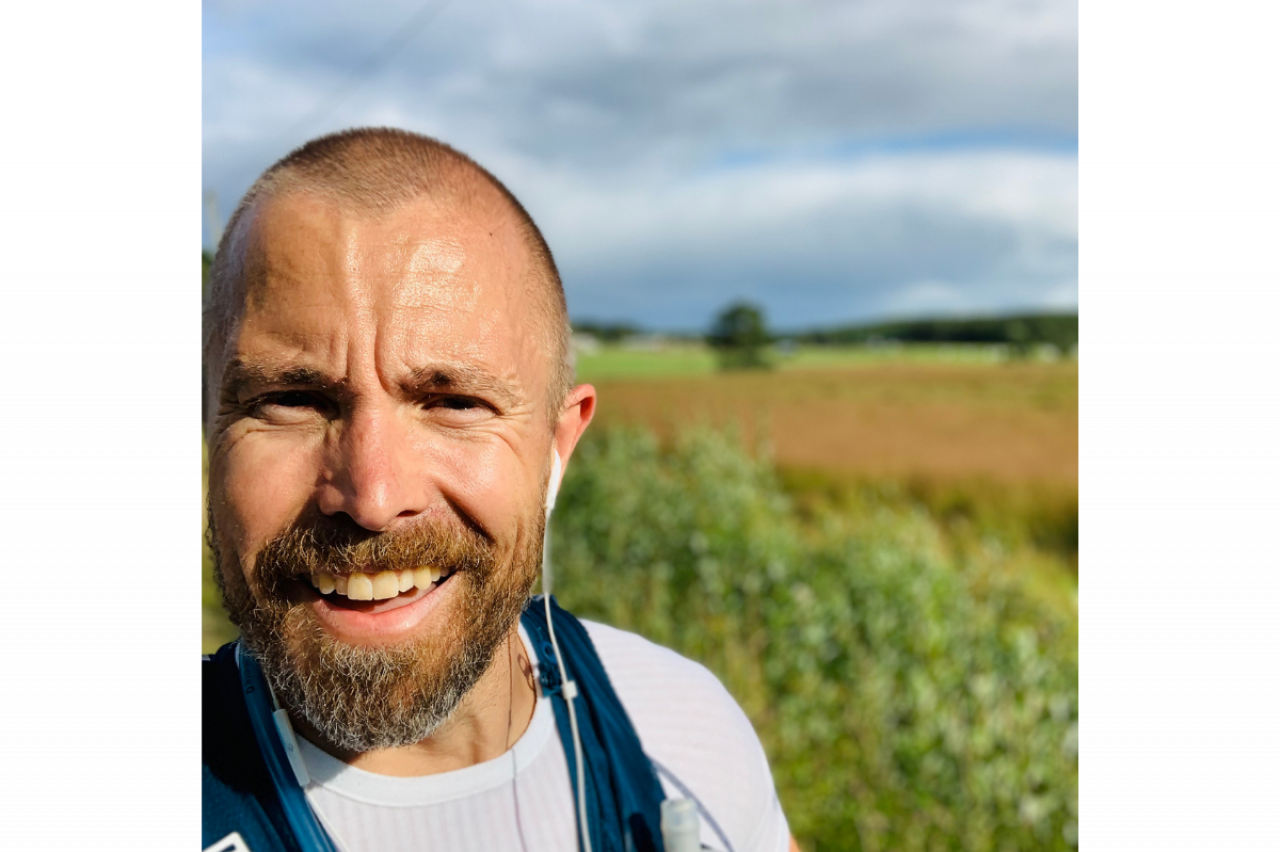
Imagine a 270 km race, with 90 kilometers on roller skis, 94 kilometers of cycling, and then a 90 kilometer cross-country run. Supervasan is one of the toughest challenges in Sweden, and few are brave enough to take on a challenge of this magnitude.
There are, however, a couple of brave souls out there. This year, Cinode’s CEO Anders Hagberg was one out of three who completed the entire Supervasan. Of course, we took the opportunity to interview him afterward.
First of all, this is not only a race, it is THE race. What was it that made you do Supervasan??
– That is a good question. I really wanted to put my mental endurance to the test, and see how far I could push myself. I was lucky enough to be asked to join a team of amazing people who were as excited as myself to take on this challenge.
Cross-country skiing has long been a passion of mine, and being able to combine it with two more sports has been a lot of fun.
How did you prepare yourself for the race? How does one even train for this kind of challenge?
– I have been preparing since March this year. I have been doing cross-country skiing for many years, but I had to train extra hard for the 90-kilometer run, between five to ten hours every week.
Before the race, I talked to a lot of professionals in nutrition and exercise to be able to prepare in the best way possible. I have had to consume extreme amounts of carbohydrates and calories to get around.
The race also required a lot of preparation with regard to logistics. We had a great support team that was ready to cheer on and hand out things that would give us energy throughout the race. To be able to do a thing like this, you need a team of people behind you.
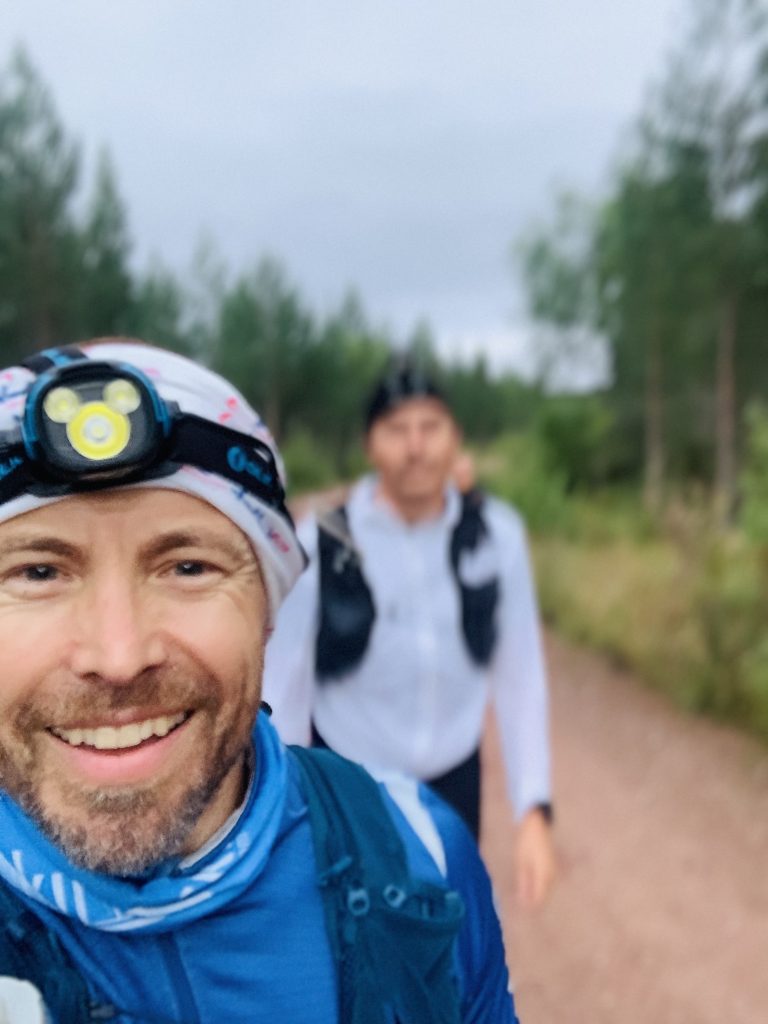
Tell us about the race and the different stages. What was the biggest challenge?
– We started early Saturday morning in Sälen on roller skis (Vasaloppsvägen). After 90 kilometers, we finally arrived in Mora. There, the cycle stage “Cykelvasan ” began. Cykelvasan is 94 kilometers on a mountain bike but in the opposite direction. Once at the finish line back in Sälen, I put on my trail running shoes to run Ultravasan which is another 90 kilometers. A total of 274 kilometers.
To get through the competition, you need to eat and drink a lot of easily digestible carbohydrates, such as white bread, pancakes, and sports drinks. Small intakes, continuously. Between each stage, we also ate hot, well-cooked food. You have to consume crazy amounts of calories to get through the race!
When it was time to run, after about twelve hours of skiing and cycling, the sun started to set. After a couple of hours of running, the realization caught up with me. With depot stops and the terrain, it takes about ten minutes per kilometer to get there. 90 kilometers x 10 minutes is 900 minutes, i.e. 15 hours. I realized it was going to be a long night, but I just kept on eating pancakes until the next morning.
I started to break down the last distance into 18 five-kilometer races and counted every kilometer. At 30 kilometers, the realization came that we “already” made it through a third, and almost half, of the race.
As a team, cheering each other on and pushing each other, is one of the best feelings I know. The ambition was to reach our goal as a team and use each other’s strengths along the way. And that is exactly what we did.
When we finally reached Mora after almost 15 hours of running, our entire support team stood by the finish line and celebrated. It was a powerful feeling that we created together. I love moments like that.
Would you compete in Supervasan again?
It is a bit too early to answer that question. We shall see. 🙂
You have completed “Vasaloppet” several times, and you were registered for the Nordenskiöld race (220 km) earlier this year. What are your key takeaways from these races? And is there anything you have learnt that has had an impact on your working life?
– I am motivated by setting long-term goals and achieving them. When I find something that I am passionate about, and that motivates me, I can actively control my personal development. I think that everyone needs a hobby/passion in addition to work to feel good. It does not have to be a sport, it can really be anything.
If you work hard to achieve something, you will see results and you will become better! The same goes for work. There must be a clear “why” in our daily work, and clear goals to strive for together. If we are persistent and motivated, we will together find a way to achieve our goals. It is the journey itself towards the goal that is important.
Cinode is growing at full speed! What are you looking forward to this autumn?
- We have a lot of exciting challenges ahead, and we will be looking into new markets in the nearest future. In order for this to be made possible, we need to continue to grow our team. We are looking forward to welcoming new talents to the team to make this expansion possible. Further, I hope that we get to spend more time at the office this autumn. Google-meets is great, but nothing compares to the energy one has after a day at the office together with all of the colleagues.
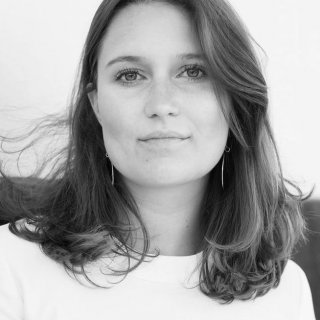
Global Communication & Marketing
Global Communication & Marketing
You may also like...
All posts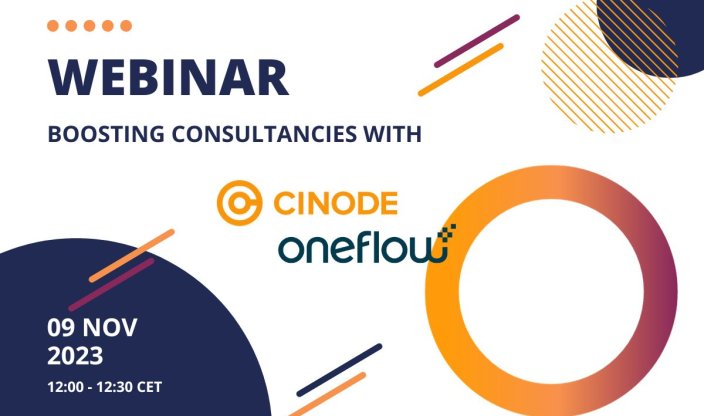
Oct 12 2023 · Cinode News
Cinode and Oneflow boost consultancies together
Oct 04 2023 · Cinode News, Consulting
Still using manual processes and guesswork in your consultancy business?
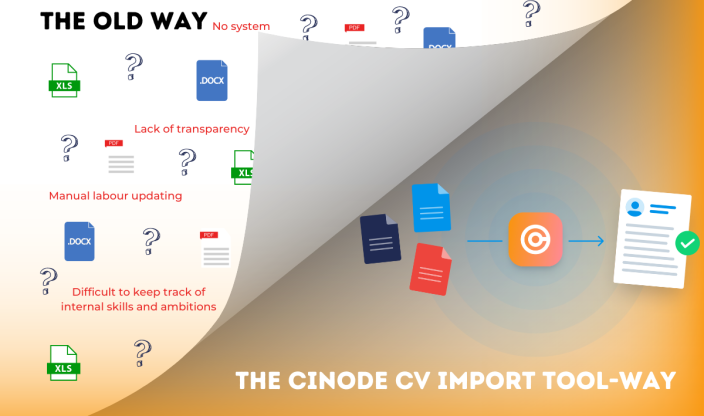
Apr 28 2023 · Cinode News, Skills Management
Easily create customized CVs with Cinode’s CV import tool

Apr 04 2023 · Cinode News, Skills Management
5 Easter eggs for eggstra effective Skills Management
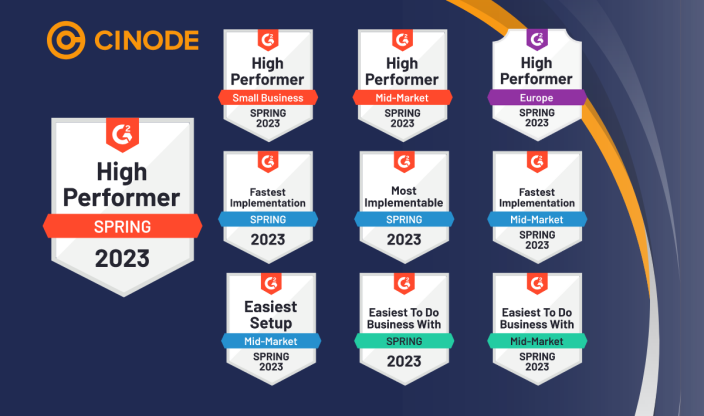
Apr 03 2023 · Cinode News
Cinode named High Performer in G2 Spring 2023 Report
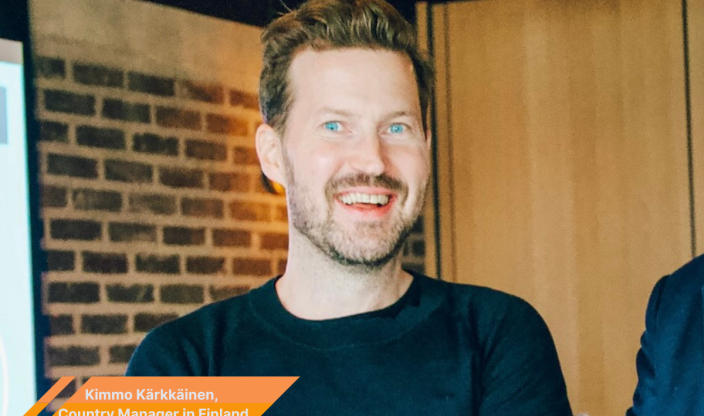
Mar 21 2023 · Cinode News, Consulting
Skills Management – a hot topic in Finnish consulting companies
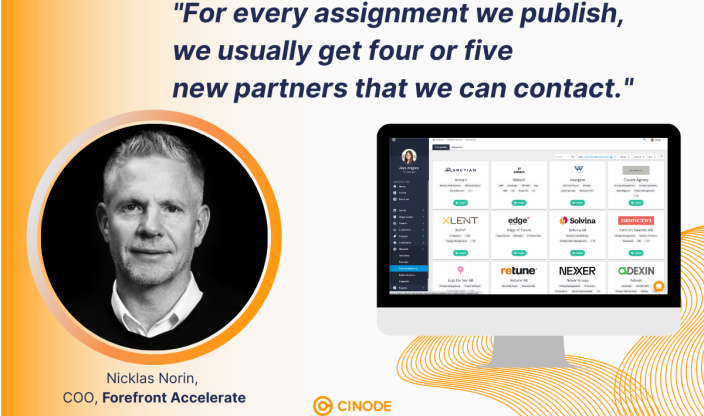
Mar 14 2023 · Cinode News
We get many more responses than before” – This is how Cinode Partner works [Video]

Mar 10 2023 · Cinode News
Cinode launches Free! Create your CV, make your competence inventory and join the Network – free of charge
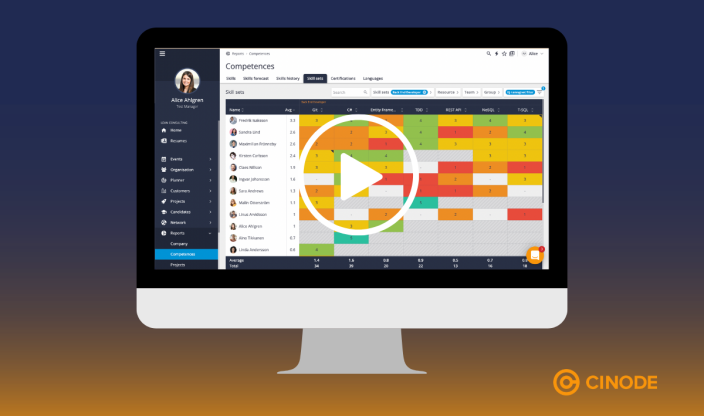
Jan 20 2023 · Cinode News
Cinode skill sets strengthen your skills [Video]
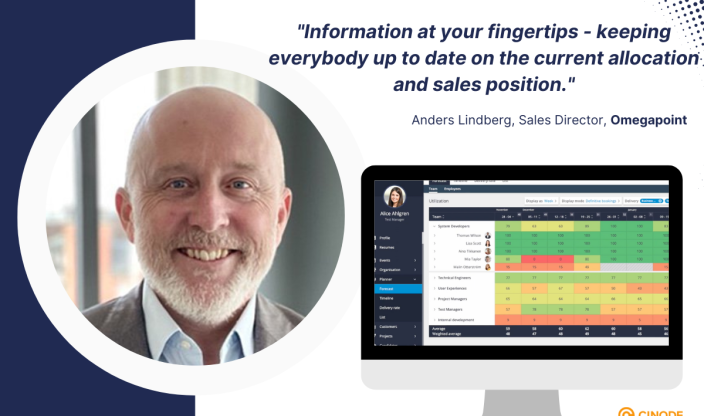
Dec 08 2022 · Cinode News, Skills Management
This is how utilization works in Cinode (Video)
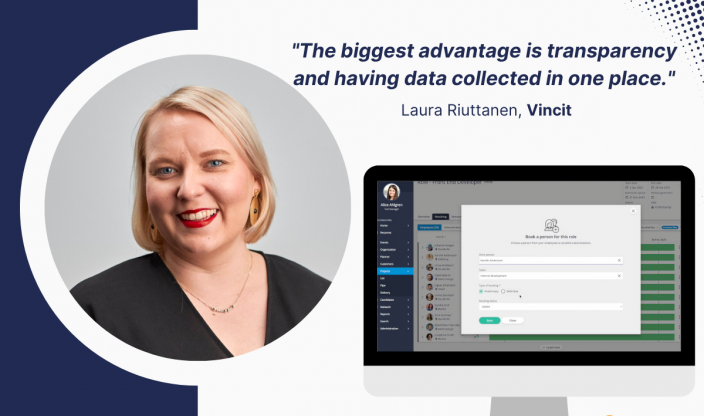
Dec 01 2022 · Cinode News, Skills Management
Add the right person to the right role with the right data (Video)
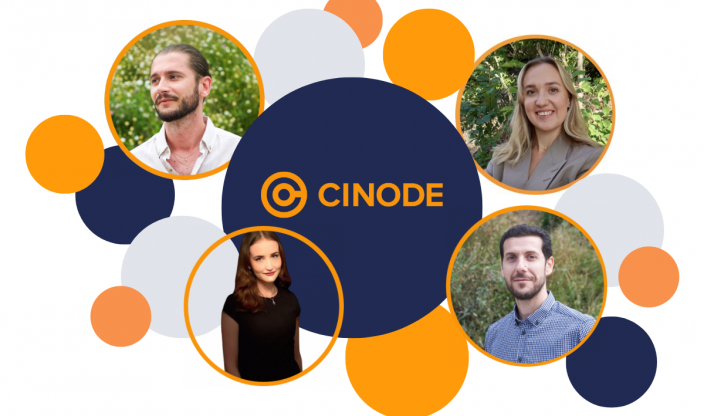
Nov 17 2022 · Cinode News
